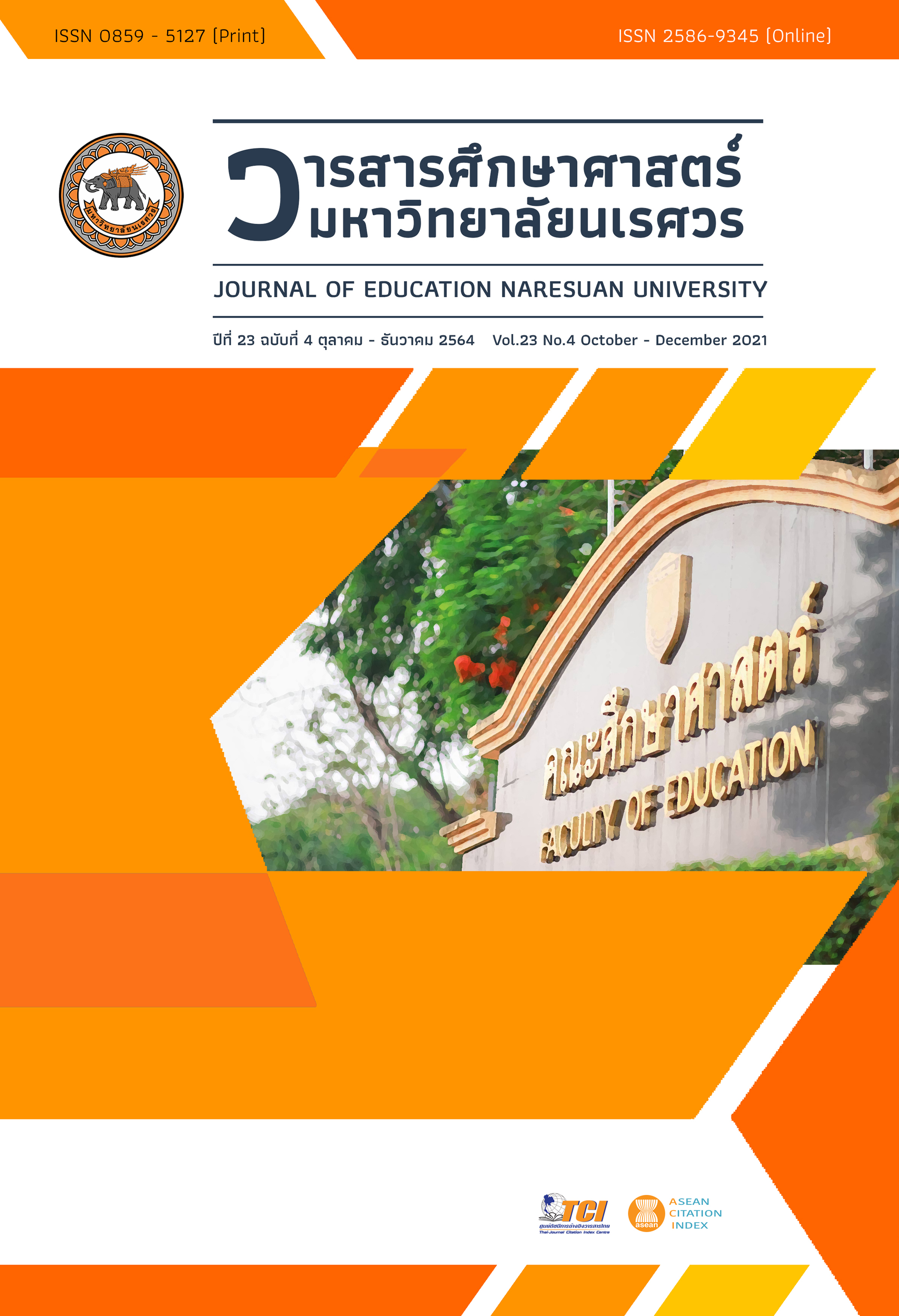A MODEL FOR DEVELOPING ENGLISH TEACHERS’ COMPETENCIES UNDER THE OFFICE OF THE BASIC EDUCATION COMMISSION รูปแบบการพัฒนาสมรรถนะของครูภาษาอังกฤษในสถานศึกษา สังกัดสำนักงานคณะกรรมการการศึกษาขั้นพื้นฐาน
Main Article Content
Abstract
The objective of this research was to develop the model of competency development of English language teachers under the Office of the Basic Education Commission. There were three steps as follows: 1) studying competencies and a guideline for the development of English language teachers' competencies by interviewing experts and English language teachers. The statistic used for data analysis was content analysis and questionnaire was mean, standard deviation and exploratory factor analysis. 2) Constructing and checking the model and appropriateness of model by interviewing experts. 3) Assessing the feasibility and utility of the model for English teachers' competencies development from experts and English language teachers. The statistic used for data analysis was mean and standard deviation. Findings were as follows: a model for teachers' competencies development consists of 3 components: 1) competency of English teachers with 6 competencies, 2) methods of developing English teacher competencies consisting of 7 methods, and 3) the process of English teachers development consisting of 6 steps and 6 supporting development factors. When the model was evaluated in terms of the feasibility and utility, it was found that the model for the competency development of English teachers is feasibility and utility of implementation at the high level.
Article Details
The owner of the article does not copy or violate any of its copyright. If any copyright infringement occurs or prosecution, in any case, the Editorial Board is not involved in all the rights to the owner of the article to be performed.
References
Al-Seghayer, K. (2017). The central characteristics of successful ESL/EFL teachers. Journal of Language Teaching and Research, 8(5), 881-890. DOI: http://dx.doi.org/10.17507/jltr.0805.06
Chalarak, N. (2016). State of English instruction of Thai teachers of Prathom Suksa 6, Lamphun Primary Educational Service Area 1. FEU Academic Review, 10(2), 130-141. [in Thai]
Kongkasawat, T. (2010). Competency...How do they do it? Bangkok: SE-EDUCATION Public Company. [in Thai]
Ministry of Education. (2014). The guidelines on English language teaching and learning reforming policy. Bangkok: Chamjuree Products. [in Thai]
Ministry of Education. (2018). Southeast Asia Teachers Competency Framework (SEA-TCF). Bangkok: The Teachers’ Council of Thailand. [in Thai]
National Institute of Educational Testing Service (Public Organization). (2018). Announcement of the results of the National Basic Educational Test (O-NET). NIETS News. Retrieved from https://www.niets.or.th/uploads/content_pdf/pdf_1526956397.pdf [in Thai]
Office of the Basic Education Commission. (2018). Policy Fiscal Year 2018. Bangkok: Agricultural Cooperative of Thailand. [in Thai]
Panich, V. (2012). Way of learning for students in the 21st century. Bangkok: Sodsri – Saritwong Foundation. [in Thai]
Prachachatturakit Online. (2017). EF English Proficiency Index (EF EPI). Retrieved from https://www.prachachat.net/education/news-84621
Richards, J. C. (2001). Competence and performance in language teaching. New York: Cambridge University Press.
Sangseemuk, S., Wannasri, J., Chansila, W., & Mejang. S. (2014). A model for competency development of teacher in school under the jurisdiction of primary educational service area office. Journal of Naresuan University, 16(2), 119-128. [in Thai]


